We explore the possible connection between a vegan diet and gut health and provide non-diet ways to relieve and treat bloating.
Have you heard the news? The new trend isn’t weight loss. It’s all about bloating. My YouTube, Facebook and Instagram feed is full of people promising to get rid of “bloating”. Every influencer is promising its viewers a “flatter tummy” and “better digestion to stop the bloat”, so I wanted to find out everything there is to know about bloating and actual ways to treat it. Specifically I want to talk about a vegan diet causes bloating and non-diet ways to treat bloating.
So grab a comfortable seat and let’s get into it!
What is Bloating?
Bloating is described as the feeling of abdominal pressure or feeling tight and swollen in the abdomen. With bloating, you often see an increase in abdominal size in a short period of time. Bloating is often accompanied by several other symptoms like abdominal pain, flatulence, burping, belching, abdominal rumbling or gurgles.
Bloating is a very common condition. It’s been reported in 20% to 30% of the general population. On top of that, more than 50% of people with bloating report that it has a significant impact on quality of life.
Can Bloating Be Diagnosed?
Sadly, there is no specific test or biomarker for identifying bloating. When a person reports symptoms of tightness, fullness and pressure around the abdominal region, they are referred to get tested for common gut disorders. We’ll discuss that in a bit.
common Causes of Bloating
Excessive Gas
Excessive as is believed to be a common cause of bloating. Gas can buildup in our digestive tract when undigested food gets broken down or when you swallow too much air. This study using abdominal radiography demonstrated that intestinal gas volume was greater in patients with IBS than in controls (54% vs 118%). At the same time, some studies, like this one, doesn’t support the theory that excessive gas induces bloating or abdominal pain.
Constipation
Constipation is a common cause of bloating because the buildup of fecal matter in a colon can mimic the pain and pressure of bloating. Stool stuck in the colon can produce more gas leading to abdominal discomfort.
Uncoordinated Abdominal Wall Muscles
Aside from gas or constipation, another cause of bloating may be a muscular issue. When we eat, our diaphragm typically needs to move up to accommodate your stretched stomach. If there’s an issue with your abdominal muscles, it may not be able to accommodate your stretched stomach, triggering bloating and abdominal pain.
Psychological Distress
Some research discovered that patients with bloating revealed increased anxiety and depression. This led to the hypothesis that psychological distress may contribute to the perceived severity of bloating. In some large studies, bloating was associated with some major depressive disorder, panic disorder and sleeping difficulties.
While some of these studies mentioned are a few decades old, other studies have failed to demonstrate the relationship between psychological distress and bloating. For now, it’s still unclear whether a relationship exists.
Medical Causes of Bloating
While there are a bunch of medical causes of bloating, let’s just look at a few common ones.
Small Intestine Bacterial Overgrowth (SIBO)
SIBO is a condition where patients develop excess bacteria in their small bowel leading to severe bloating and distension. SIBO is a really common topic among wellness bloggers, with a lot of people claiming that IBS doesn’t exist, and that it’s really all SIBO. This apparently comes from studies that overstate the rates of SIBO in IBS with some studies suggesting up to 80% of IBS cases have SIBO. While SIBO does exist, at the moment we just don’t have a fantastic way to diagnose it yet. In clinical cases where SIBO is identified, it can be managed through a combination of dietary changes and antibiotics.
Functional Gastrointestinal Disorders (FGIDs)
Functional Gastrointestinal Disorders (aka FGIDs) are disorders that affect any part of the gastrointestinal tract from the esophagus to the intestines.
What constitutes a FGID? The primary features of FGIDs are:
- Abnormal motility
- High nerve sensitivity
- Brain-gut dysfunction
Here’s a common functional gastrointestinal disorder.
Irritable Bowel Syndrome
Irritable Bowel Syndrome (IBS) is defined as a group of intestinal symptoms that typically occur together. IBS symptoms vary in severity and duration from person to person. Some symptoms of IBS include, but not limited to: cramping, abdominal pain, bloating, gas, constipation and diarrhea. Bloating has been reported in up to 96% of patients with IBS.
Structural Gastrointestinal Disorders
Celiac Disease
Celiac disease is a digestive disorder caused by an abnormal immune reaction to gluten. Basically, your body responds to gluten as a toxin which destroys the villi which are found on the wall of the small intestines. When the villi is damaged, the body is unable to absorb nutrients from foods which can cause permanent intestinal damage and health complications. A common symptom of celiac disease is abdominal bloating and pain.
Inflammatory Bowel Disease
Inflammatory Bowel Disease (IBD) is defined as a group of intestinal disorders that cause prolonged inflammation of the digestive tract. The two main forms of IBD are Crohn’s Disease and Ulcerative Colitis. In Crohn’s Disease, inflammation can occur anywhere along the digestive tract, however is usually located in the lower part of the small bowel and the upper colon. In Ulcerative Colitis, inflammation typically occurs only in the large intestine, including the rectum and anus.
Both main forms of IBD can often cause bloating and gas.
Can A Vegan Diet Cause Bloating?
With the Un-Vegan movement spreading on YouTube, many YouTubers that used to be vegan have claimed that a vegan diet caused their bloating, gas and other digestive issues.
Let’s explore some potential relationship between a vegan diet and bloating.
a vegan diet is Typically High Fibre Diet
A vegan diet is typically high in fruits, veggies, beans and legumes, which all happen to be high in fibre. While fibre is important for keeping us regular and carry numerous health benefits, a diet TOO rich in fibre may cause bloating. People that initially transition to a vegan or vegetarian diet tend to report unpleasant gut issues like constipation, bloating or diarrhea. While these symptoms tend to go away after a few weeks or months, some people experience those symptoms chronically. This is likely not because of the diet per se unless you’re consuming an excessive amount of fibre consistently, but there may be other underlying causes of their bloating.
a vegan diet is high in FODMAPs
Now, if you’ve heard about bloating, you’ve probably also heard about FODMAPs or a Low FODMAP diet. Again, a vegan diet can often be high in carbs, especially if you’re following a high carb raw vegan diet. In that case, you’re more likely to consume certain FODMAP containing foods because they’re found in carbohydrates.
For a more detailed breakdown of FODMAPs be sure to check out my post on FODMAPs here. FODMAPs are a group of short chain carbohydrates that share similar properties.
FODMAPs stand for “Fermentable Oligo-, Di-, Mono-saccharides And Polyols”
FODMAPs are small in molecular size and are often associated with digestive symptoms like gas, bloating, diarrhea and constipation because they are often difficult to breakdown and tend to be poorly absorbed in the small intestine.
Because FODMAPs are poorly absorbed they sit in the small bowel and intestine where they are fermented and produce excess gas, leasing to bloating and stomach pains. FODMAP compounds draw water into the small intestine, and that excess water in the digestive tract can cause feelings of pressure and fullness around the abdomen.
So how does this relate to a vegan diet? Well, a vegan diet tends to be rich in fruits, vegetables, legumes, pulses, grains and FODMAPs are found almost exclusively in plant foods (with the exception of lactose in dairy products).
Here are some common FODMAP foods which may be found in a vegan diet.
- wheat: bread, pasta, breakfast cereals
- grains: amaranth, barley,
- garlic
- onion
- high FODMAP fruits: apple, apricots, cherries, peaches, figs, mangoes, watermelon
- high FODMAP vegetables: asparagus, brussels sprouts, cauliflower, leeks, mushrooms, snow peas
- legumes and pulses: black eyes peas, chickpeas, kidney beans, lentils, split peas
- sweeteners: agave nectar, sugar free mints, chewing gums
When it comes to FODMAPs, some individuals are more sensitive than others, in which case specific FODMAP compounds are eliminated from their diet.
Benefits of a Vegan Diet on Gut Health
While some people following a vegan diet may experience gut issues, there are also other instances where a vegan/vegetarian diet helps to populate our gut with a diversity of good bacteria that can directly benefit our health. According to evidence, a plant-based diet appears to be beneficial for human health by promoting the development of a more diverse gut microbial system. One study found a positive association between local microbial richness and long-term fruit and vegetable intake. Another study found that adding whole grain barley, brown rice resulted in an increase in microbial diversity.
Can You Treat Bloating while on a vegan diet?
Bloating can be treated by working with a Registered Dietitian or Doctor to identify the contributing factors causing bloating and providing an individualized treatment plan. Some of these treatment strategies include the combination of dietary and lifestyle changes and medications.
Let’s review some of these strategies.
Dietary Changes for Treating Bloating while vegan
Increasing or Decreasing Fibre
Manipulating fibre may be an important first step if you’re struggling with constant bloating. If constipation is your associated symptom, increasing your fibre intake may be an effective strategy to help get the bowel moving and reduce bloating. Increasing fibre may worsen bloating symptoms if they’ve got underlying causes like IBS or IBD because fibre is often fermentable, meaning it can increase gas production and contribute to bloating. So this is why it’s always really important to work with a dietitian and doctor to understand your unique case.
Avoid Gas Producing Foods
Since bloating is often associated with excess gas in the digestive tract, it’s recommended that people avoid carbonated drinks and chewing gum to prevent the influx of more gas.
Cooking Foods
There is some evidence that cooking certain vegetables, rich in FODMAPs like broccoli, cauliflower, cabbage and brussels sprouts may make them easier to digest. Essentially, cooking foods will breakdown some of the food and make it easier for your body to digest.
Low FODMAP Diet
A Low FODMAP diet has been confirmed as the most effective therapy for the management of IBS and other gut related disorders. It’s been effective at decreasing symptoms in at least 75% of patients. According to studies, FODMAP restriction resulted in a 50% to 82% reduction in bloating. A Low FODMAP diet is not a sudden restriction of all FODMAP containing foods. With a Low FODMAP diet, FODMAP containing foods are avoided for a period of time to reduce bloating and gas buildup and that helps to isolate and identify which foods may be problematic in your diet. And in the context of a vegan diet, this may mean removing certain high FODMAP fruits, vegetables, wheat products, legumes and pulses.
It’s recommended to talk to your doctor and/or dietitian before initiating a Low FODMAP diet because it can be quite restrictive and requires the supervision of a professional.
Reduce High Fat Foods
Fatty foods can slow down digestion and the emptying of the stomach. While fats are beneficial in our diet, by playing a role in nutrient absorption and improve satiety and fullness, it may cause some people to bloat. In a person has an existing medical condition, like dyspepsia (aka indigestion), reducing dietary fat intake may improve their symptoms of bloating and abdominal discomfort.
Lifestyle Changes for Treating Bloating
Moving Your Body
Like most instances, getting your body moving can do wonders for our health. Moving your body is a great way to naturally get things moving in your gut. This can improve gas clearance from the bowel. One study with eight patients with bloating found that using a stationary bike improved intestinal gas clearance and reduced symptoms of bloating.
Stress-Relieving Activities
Aside from food, another cause of digestive issues is stress, so reducing stress may play a role in reducing bloating symptoms. Research has found that diaphragmatic breathing techniques may provide from benefit in reducing abdominal distension.
Medications for Treating Bloating
Laxatives
If a person’s bloating is caused by constipation, then laxatives may help to get the bowel moving and potentially reduce bloating. However, there are always risks of taking laxatives, especially on a regular basis. It’s recommended to speak with your doctor about taking laxatives.
Antibiotics
In some cases, antibiotics may be appropriate the management of certain conditions like Small Intestine Bacterial Overgrowth (SIBO). For SIBO management, a non-systemic antibiotic like Rifaximin is used where it remains in the gut without spreading to other areas of the body
Antidepressants
In some studies antidepressants were effective at reducing bloating, while other studies found no effect. This study found that Fluoxetine was more effective than the placebo at reducing abdominal discomfort and relieving the feeling of bloating. In another study, Paroxetine improved overall wellbeing, but no improvement was seen in improving abdominal pain or bloating. In both of these studies, the antidepressants were used in patients with Irritable Bowel Syndrome.
Digestive Enzymes
If you’re having trouble breaking down certain carbohydrates, your doctor may recommend a digestive enzyme. However, currently there is little evidence that combination digestive enzymes (that is, not traditional digestive enzymes like Beano or Lactaid) are helpful for people with common gut problem like heartburn or IBS. There have been cases where digestive enzymes have been effective at reducing bloating, but for now the research is conflicting, at best.
I also want to briefly comment on the effectiveness of digestive enzymes. There are a ton of over-the-counter digestive enzymes, and the market for these enzymes is a lucrative one. By 2025, the digestive enzyme market is expected to grow to more than $1 billion. That being said, a lot of these digestive enzymes haven’t been regulated or scientifically evaluated for effectiveness. On top of that, some come with potential side effects and could interact with certain medications. Since we don’t always know the safety or even the purity of these supplements, I recommend always speaking with a doctor before shelling out the cash.
Why “I Feel Bloated” is The New “I Feel Fat”
One of the concerns I have with treating bloating is that many people resort to highly restrictive diets that may promote disordered eating. YouTube and other social media channels are littered with content about “waking up with a flat tummy” or “de-bloating teas and supplements”, which is really just a way to buy into diet culture. If you want to learn more about these supplements, please check out my post on detox teas for treating bloating and weight loss.
Become an Abbey’s Kitchen Subscriber
Contribution By:
Sofia Tsalamlal, RD
Updated on January 19th, 2022

Abbey Sharp is a Registered Dietitian (RD), regulated by the Ontario College of Dietitians. She is a mom, YouTuber, Blogger, award winning cookbook author, media coach specializing in food and nutrition influencers, and a frequent contributor to national publications like Healthline and on national broadcast TV shows.
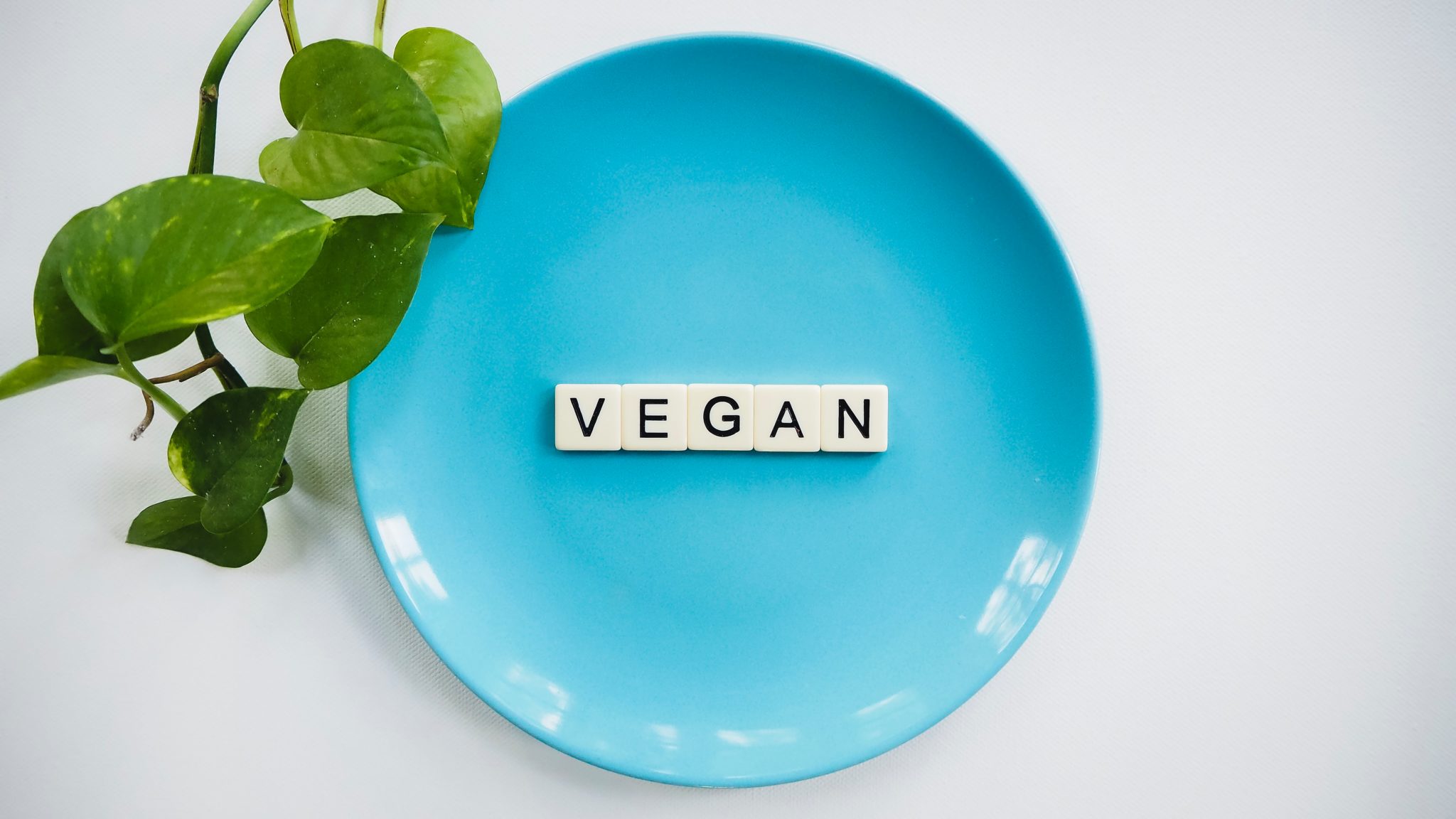
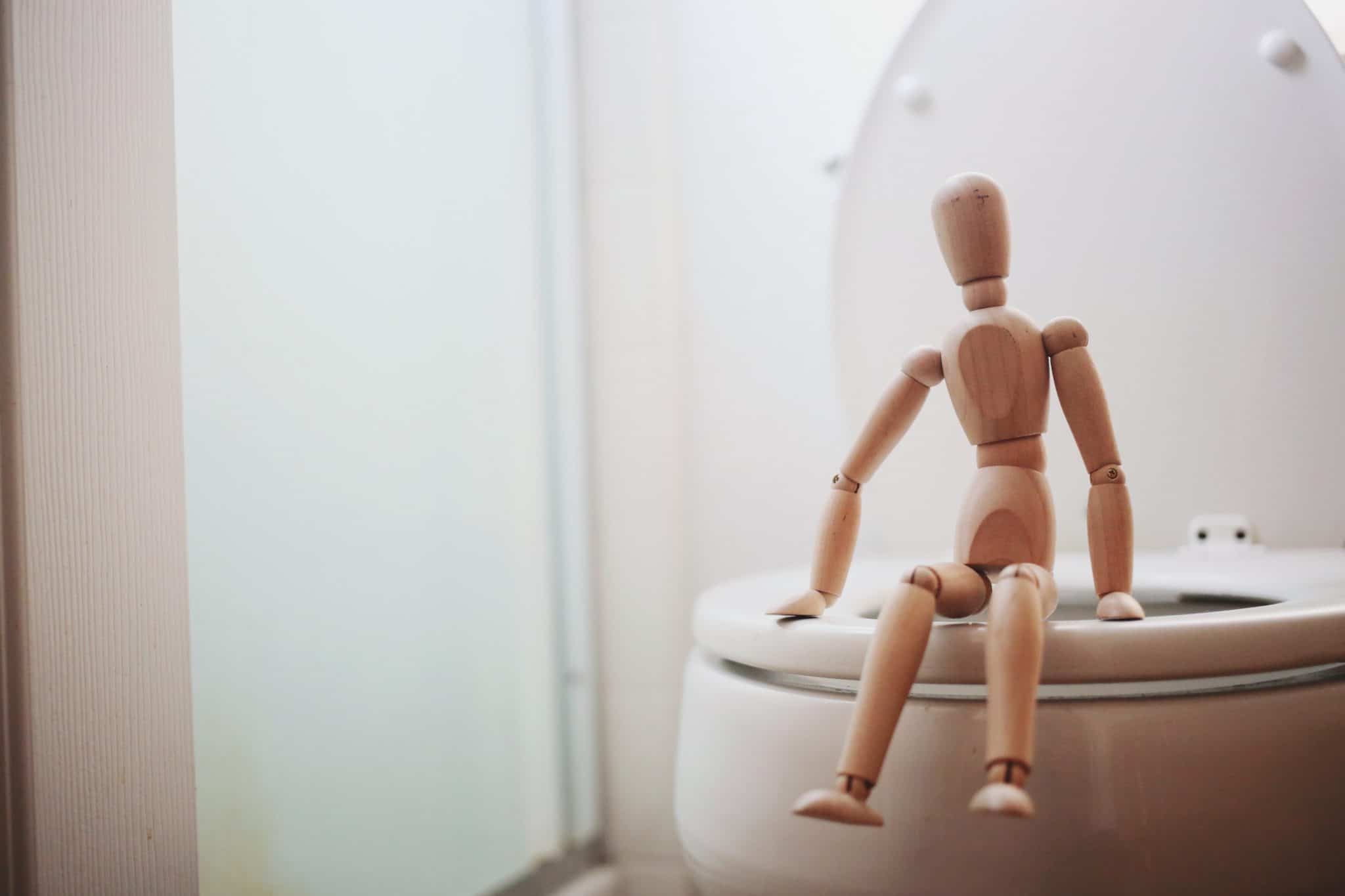
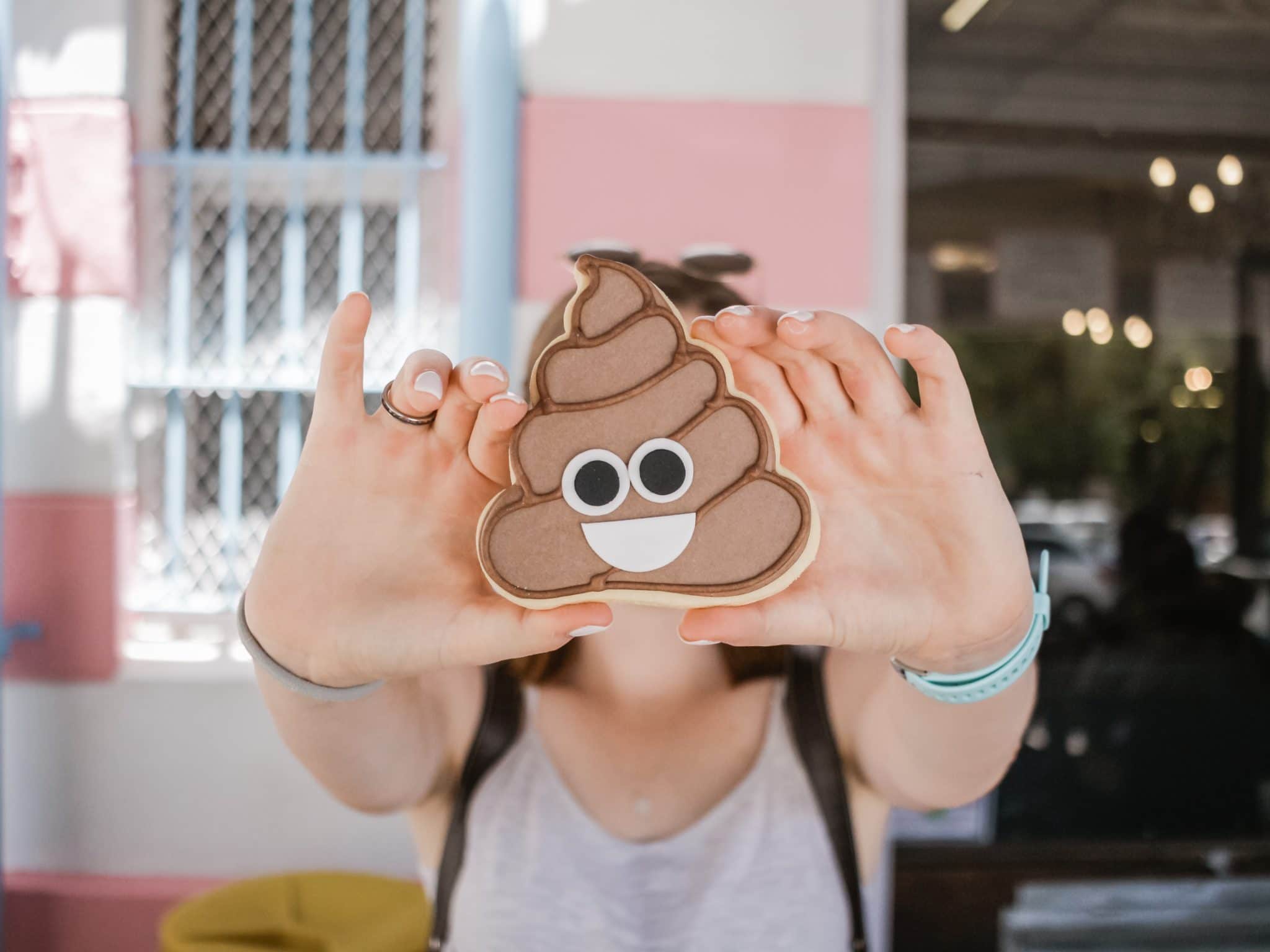
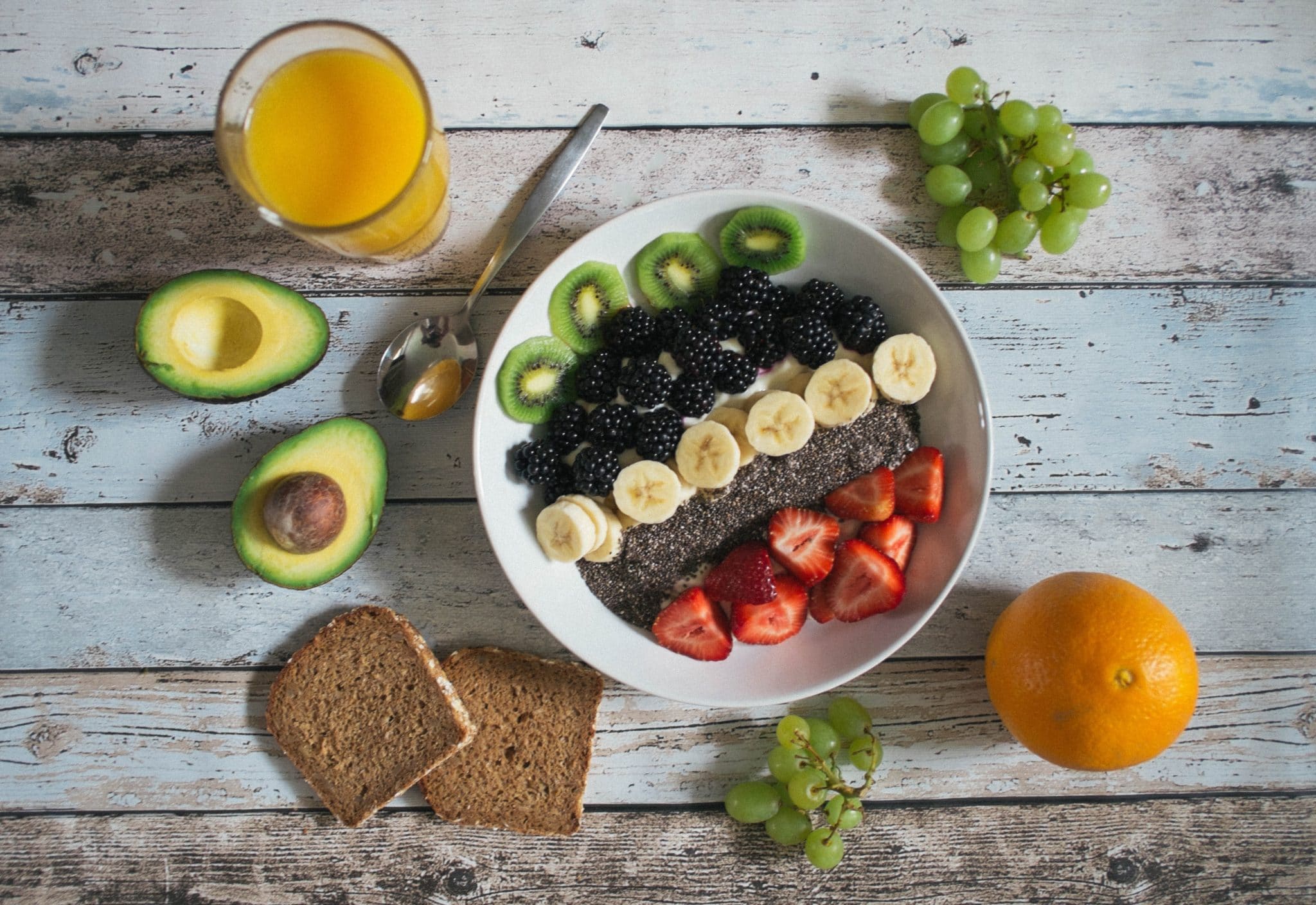
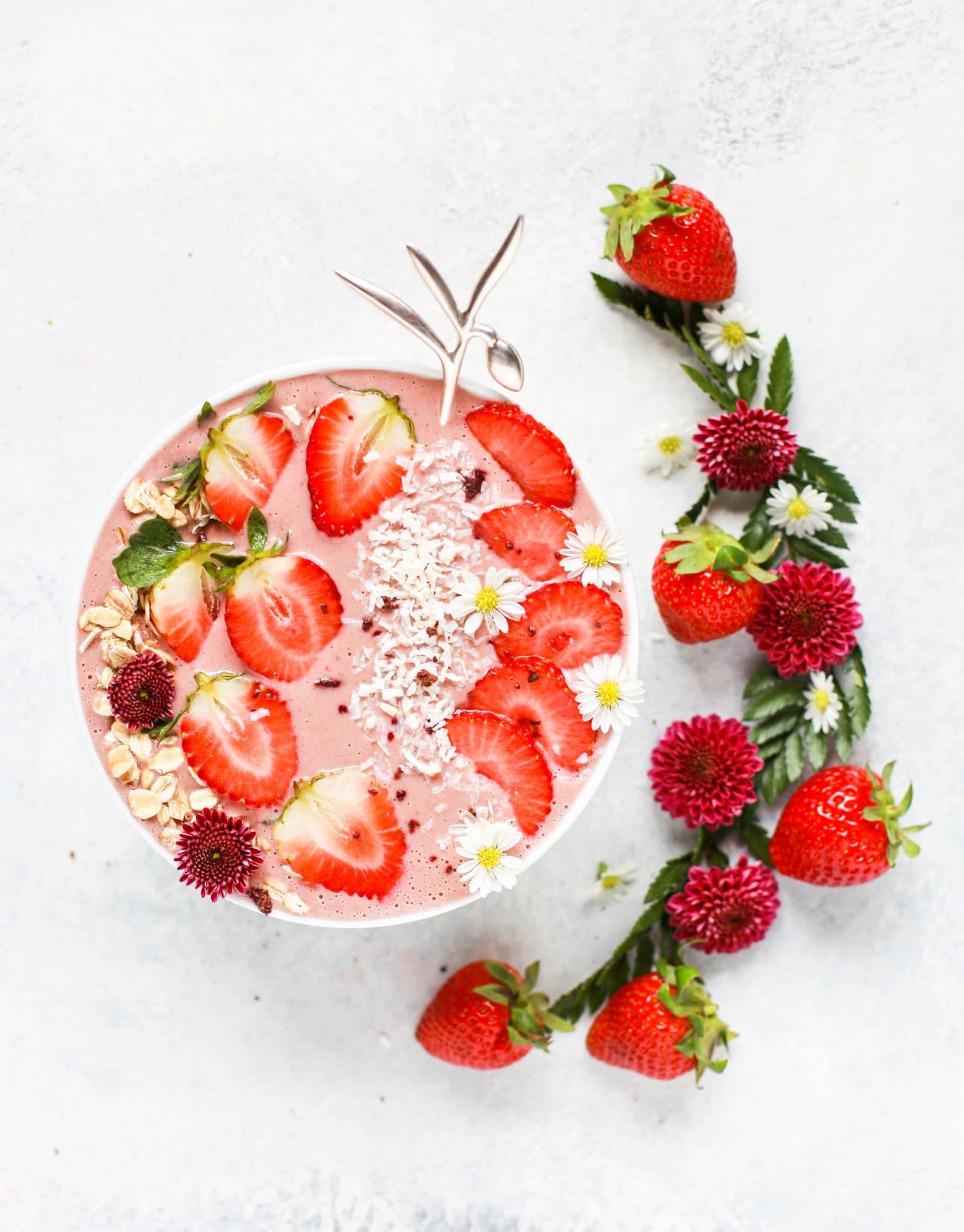

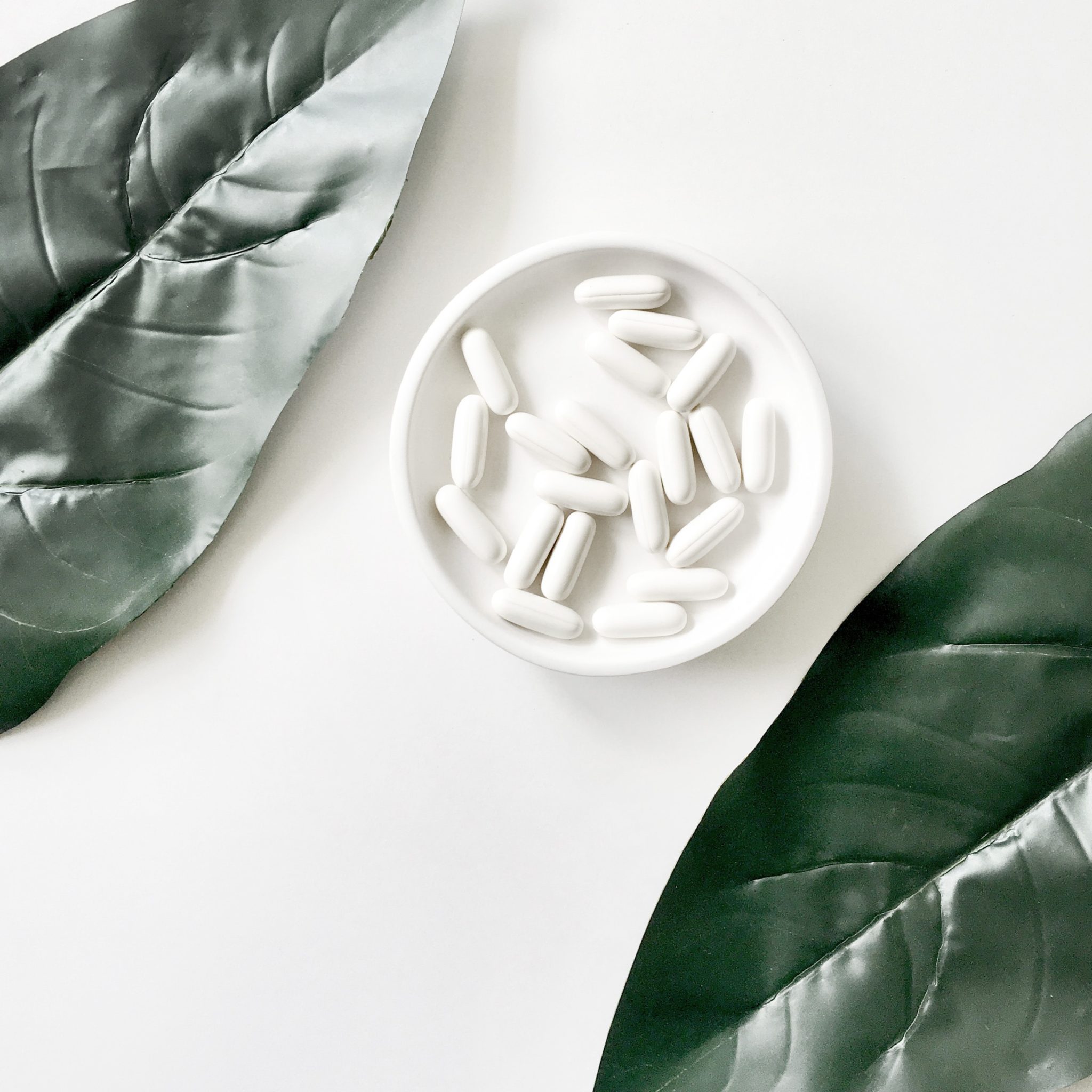

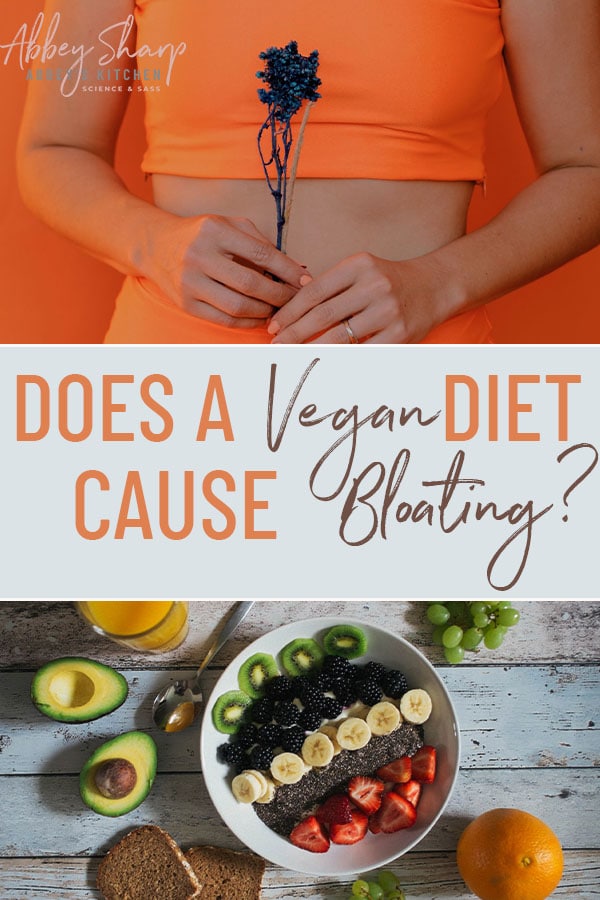
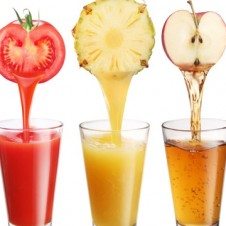
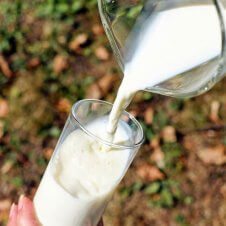


Sky says
Hi Abbey. I recently transitioned to veganism and am now very bloated. Is this due to the sudden increase of fiber in my system? I’ve been bloated for five days and am now wondering if that’s normal for a new vegan. Also, love your page!
Abbey Sharp says
Hi Sky. That could definitely be a possibility! If your body isn’t used to the greater amount of fibre from a vegan diet, its important to start slow while also drinking enough water.
Kate says
Hey Abbey! I have watched a few of your videos reviewing different YouTubers’ diets (e.g. Caroline Diesler, Sanne Vloet, Maddie Lymburner etc) and I just wanted to say that I really appreciate that you give vegan diets a fair go. I have been plant-based for 3+ years and have felt my healthiest and happiest, however I eat a lot more protein and healthy fats than most of these YouTubers and I generally think I achieve a more balanced relationship with food than some of them (e.g. they never seem to eat wholegrain bread or white rice like a normal person?!?). It is really admirable that you can recognise their flaws and note where they can improve while also recognising the value of eating plant-based. This means a lot to be as often I think the either baby gets chucked out with the bathwater (and veganism is demonised) due to some strange stereotypes perpetuated by ‘famous vegans’ or it is assumed that a vegan diet can be nothing but healthy (when in fact it needs attention and balance like all healthy diets). Thanks so much x
Abbey Sharp says
For sure. There is so much misinformation out there and no one diet fits into a neat little box. Diets, like the vegan diet, can be different for everyone and the vegan diet especially, is more than just a trend and has many nutritional considerations to be executed in a healthful way. I am so glad you like the videos and that they’re helpful! Keep doing what you’re doing 🙂
Fitness Wizard says
Hello, I went through your entire post and I must say that you have done a great job there. Keep on sharing more, I’ll go through your other posts too.
Cheers!
Abbey Sharp says
Thanks love!
Dr.Warren Willey says
Hello! Very useful information, the health of our intestines is very important. Not only for physical, but also for mental health. Awkwardness with a feeling of bloating can lead to anxiety. It is important to deal with such problems, but be sure to consult a doctor. Self-medication and diet can only aggravate the condition. These are really good tips about a vegan diet; increased fiber is a big contributor to our gut health. And such a diet is an excellent solution to help our intestines, but you should always consult your doctor. Good luck!
Abbey Sharp says
Thanks for your input!